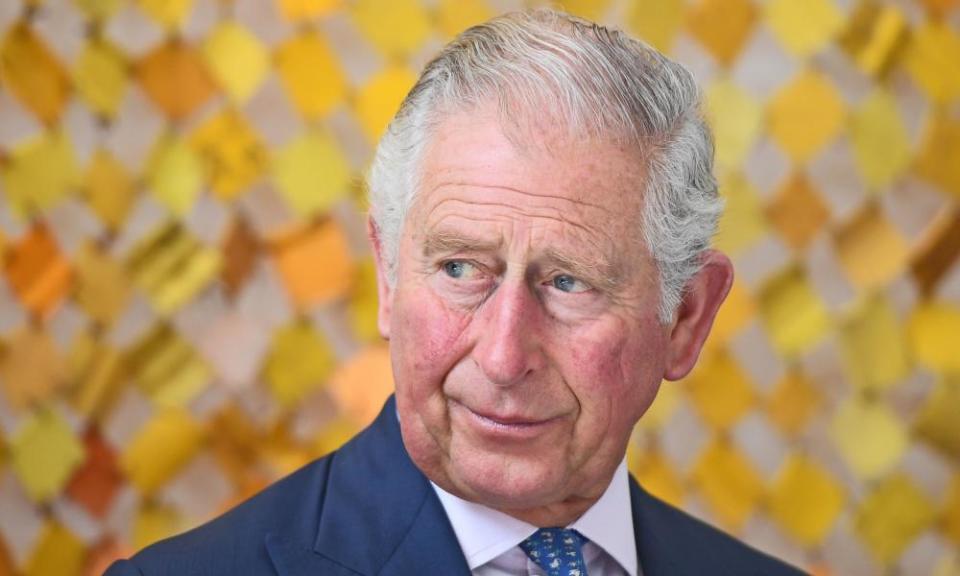The Guardian view on Prince Charles at 70: he was the future once

On Remembrance Sunday, amid all the trappings of tradition, the British people caught a glimpse of the future. As in 2017, it was Prince Charles, rather than his 92-year-old mother, who led the nation in its public commemoration of its war dead. The prince has increasingly been deputising for the Queen at public functions for some time now. Given that the Queen’s own mother lived to 101, the transition may still be a long one. But it is another public reminder that post-Elizabethan Britain will look, and probably feel, rather different.
On Wednesday, Prince Charles turns 70. Most people of that age have either retired or are winding down in some ways. Charles is different. The purpose of his life is still ahead of him. No one has prepared more thoroughly for that moment than he has. Charles has been heir to the throne for longer – 66 years and counting – than anyone in British history. If and when he succeeds his mother, he will be by some distance – William IV holds the current record at 64 – the oldest monarch on accession too.
Charles at 70 is inevitably a deeply familiar figure. Perhaps it was his unhappy first marriage that meant he seemed to move from youthful gaucheness to haughty do-gooder without much in the way of middle age in between. He is what he has long been: privileged, thin-skinned, hard-working, conscientious and traditional. In many ways, including his dress sense, he is stuck in the 1950s – possibly the only member of his generation on whom rock’n’roll left no mark whatsoever. Yet his lifelong concern for the planet is not only absolutely of today – and absolutely right too – but a supreme issue for the future.
Whether he ever gets the chance to be the useful king he has clearly aspired to be is uncertain now. In an interview in John Bridcut’s TV profile aired last week, Charles said he understood the clear difference between being heir and being monarch. That is more easily said than done, especially for a man who is set in his black-spider letter-writing ways. Yet it is difficult to judge how much all of that will matter now. Charles at 50 might have thrown his weight around a bit and made the monarchy controversial in ways his mother has spent a lifetime avoiding. King Charles III at 75 or 80 seems less likely to be – or to wish to be – a gamechanger.
For the monarchy, Charles was the future once. But that era is slipping away. The coronation of an elderly King Charles promises to be a distinctly backward-looking event, with none of the new-era excitement of the Queen’s in 1953. The royal baton, though not the crown itself, has already skipped a generation. It was noticeable that Charles’s sons, William and Harry, were encouraged to take centre stage in Mr Bridcut’s profile. They and their families are the public face of the royals now.
Post-Elizabethan Britain is as difficult to forecast in detail as post-Brexit Britain. Before we get there, there should be a public debate about the place, if any, of constitutional monarchy in this far from united kingdom in the aftermath of Brexit (if it happens). The real task of defining the monarchy for the 21st century, though, will surely fall to William. Charles would be sensible to accept this reality. As he begins his eighth decade, he should be content to be judged more for the good he has tried to do while heir, through the Prince’s Trust and Prince’s Foundation, than for his eventual and still uncertain reign.

 Yahoo News
Yahoo News 